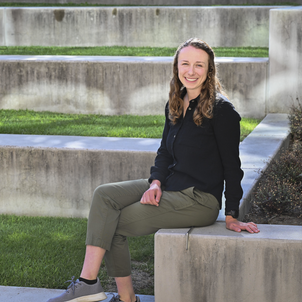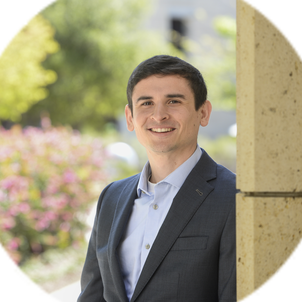I don’t handle everything directly, but it’s my job to make sure everything is operating so that our students and faculty can focus on what they do best. It’s like running a business, but what we’re producing is research and education.
At the start of my career, I was producing something entirely different: chewing gum. The summer after my freshman year of college, I started working at Wrigley’s gum in Chicago and I was one of the first women involved in the actual gum-making process. I used to drive forklifts and roll 300-pound barrels of sugar on the factory floor. The pay was great for a 19-year-old and I didn’t have a particular passion I wanted to pursue, so I ended up dropping out of college after my second year and working at Wrigley’s full time.
Eventually, I moved off the factory floor and into quality assurance and packaging. Wrigley’s paid for me to finish my degree in business management, but after a certain point there wasn’t a lot more room for upward mobility. I moved on to a few other industry jobs, including running the accounts for a small plant that manufactured wallpaper paste, before I transitioned into managing in academia.
I love being in academia. In industry, you’re making a product. Here, you’re making a difference in people’s lives. I get to see these students come in, learn all they can, and use that knowledge to move on to new opportunities. I get to work with faculty who are trying to make the world a better place. It’s really gratifying to know my efforts support all that. When you stand back and look at how many lives you’ve touched, you know you’re doing something worthwhile.
I worked in the division of endocrinology at Northwestern University for the better part of a decade. I really enjoyed it, but at some point I realized that I had let the job take over my whole life: It seemed like I was always working, or thinking about work, or seeing friends from work. So when my best friend finished her PhD and moved to California, I decided to upend my life and follow her. I took a job at Stanford in 2002 and, before I’d even started, signed up for a ceramics class at the Palo Alto Art Center.
My friends in the clay world have helped keep me from being dragged back into the lopsided work-life balance I had in Chicago. I specialize in hand-building plates and I paint each one individually, usually while watching TV at home. I sell them once a year at a show in November. It’s not something I’d ever want to turn into a job, but I love having a creative outlet and a second community to be a part of.
Related spotlights

Christine Baker

Thomas Colburn

